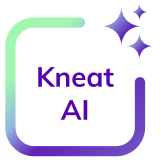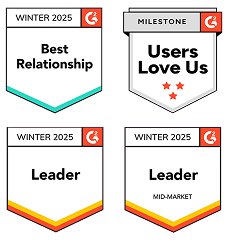At first blush, the relationship between contract development and manufacturing organizations (CDMOs) and Cell and Gene Therapy (CGT) manufacturers may be tough to see. However, not only are many CDMOs specialists in cell and gene therapy production, even those that aren’t share many of the same complexities and challenges regarding quality and validation.
This blog examines the specific challenges CDMOs and cell and gene therapy manufacturers face when it comes to maintaining compliance and ensuring high-quality production standards.
What Are CDMOs and Cell and Gene Therapy Manufacturers?
CDMOs are third-party businesses contracted to develop and/or manufacture products owned by an original manufacturer. CDMOs are typically highly specialized in specific product areas or can quickly manufacture certain medicines.
Cell and gene therapy refers to treatments or medicines that leverage live cells or genetic material to treat illness. Cell and gene therapy is revolutionizing healthcare, offering personalized and potentially curative treatments for various diseases. As the industry grows, CDMOs are playing a crucial role in helping cell & gene therapy manufacturers scale production. However, the validation and quality control challenges in this space are particularly complex due to the nature of the therapies and the regulatory landscape.
The Regulatory Landscape for CDMOs in Cell and Gene Therapy

The cell and gene therapy sector is heavily regulated due to the complexity and high-risk nature of these therapies. Both original manufacturers and CDMOs operating in this sector must navigate the stringent regulatory requirements.
Regulated by the U.S. Food and Drug Administration (FDA), European Medicines Agency (EMA), and other comparable bodies around the world, CDMOs and cell and gene therapy organizations face a number of regulatory challenges to ensure product safety and quality. These may include:
- Substance use and declaration regulations
- Labeling requirements
- Data integrity requirements for documentation
- Orphan Drug Act requirements (specifically for gene therapies)
The specific regulatory requirements depend on the product and market location.
Complex Manufacturing Requires Advanced Tools and Processes

Cell and gene therapy manufacturing is inherently more complex than traditional pharmaceutical production. Unlike small molecules or biologics, cell and gene therapies often involve live cells, viral vectors, and individualized treatment plans. This complexity, in part, explains why many CGT related products are produced by CDMOs. A 2022 survey conducted by Contract Pharma showed 62% of respondents planned to outsource their viral vector manufacturing and that number grew to 88% by 2023.
A CDMO typically has specialized expertise in a given area. Many original manufacturers will use CDMOs for complicated, difficult, or even dangerous to manufacture products. By using CDMOs, these manufacturers avoid the expense of bringing on in-house expertise and specialized equipment.
Leveraging this expertise, a CDMO can typically get products to market faster than the original organization could on its own and deliver the necessary results more consistently. Ultimately, a CDMO is used to both minimize risk for the contracting organization and accelerate the time to market.
Are you part of a CDMO? Get our CDMO Handbook and learn how digital validation can supercharge your business by getting you to market faster, with less risk, and less cost. Download the eBook now!
Challenges for CDMOs Working with Cell and Gene Therapy
Any CDMO has a significant documentation and validation burden, making efficient document management a priority. This is underscored by the complex manufacturing found in CGT manufacturing. Not only do CDMOs face the same regulatory burden as an original manufacturer in getting products to market, but, as their immediate customers are manufacturers as well, they have additional considerations they must be prepared to address, including:
- A need to transfer large amounts of documentation to external stakeholders
- Frequent changes to equipment and processes requiring commissioning, qualification, and validation (CQV)
- A requirement to adjust to customer-specific templates, processes, and standards and to demonstrate them
- Obligation to be audit ready for both customer products and processes as well as internal
- Expectations of speed that at least meet the customer’s ability to produce a product
Investment in Cell and Gene Therapy has ballooned alongside increased FDA approval for such treatments. Chemical and Engineering News reported a $4.2 billion jump in investment to $11.7 billion USD from 2017 to 2023. That same year the FDA approved more CGT products and treatments than ever before with seven therapies being approved.
This is a signal that CGT is a new front for life sciences companies, but to compete, they’ll need expertise, speed, and compliant processes.
Digital Validation for CDMOs and Cell and Gene Therapy Organizations
Functional validation involves ensuring that every aspect of the production process meets regulatory and safety standards. This can involve everything from equipment qualification, environmental monitoring, data integrity, and supplier management. In cell and gene therapy, where treatments are tailored to patients, ensuring the reproducibility of results is critical. Manual processes simply can’t keep up.
Digital validation platforms, like Kneat Gx, can offer many benefits to CDMOs and companies working with CGT. From securing data integrity across the entire lifecycle, to making it easier to handover large amounts of documentation, digital validation is proved to reduce validation cycle times and enhance compliance.
See Kneat Gx in action for yourself during our monthly demo webinar. You’ll see the latest features and functions and get a chance to ask questions of our experts as well. Sign up here to book your spot.







